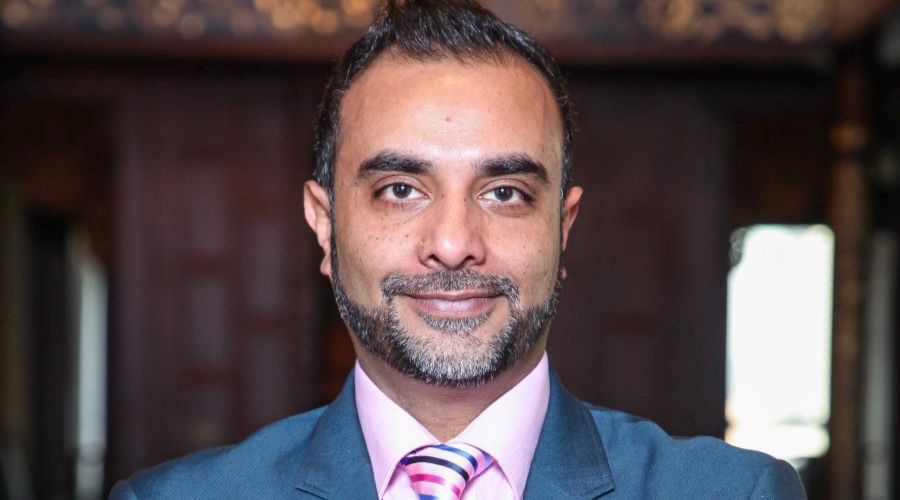Why are governments hoarding Bitcoins?

Khurram Shroff is the chairman of UAE-based private equity firm IBC Group which has invested in over 4000 different Blockchain products. Shroff has been an ardent champion of Blockchain and was also instrumental in the recent launch of Ethereum 2.0, through an investment of $10 million (around 20,000 Ether stakes).
The US-based S&P Dow Jones Indices will debut cryptocurrency indices this year, an important event marking the mainstream acceptance of crypto. This development follows a period of bullish tailwinds for digital currencies, particularly Bitcoin which, at the time of writing this article, is hovering at a valuation of $32,000 per Bitcoin.
Bitcoin's current bull run can be attributed to its new-found role as a hedge investment – somewhat in the vein of gold and silver bullion, which can sustain value through inflationary pressures and debasement of fiat currencies. Although this situation is largely owed to the pandemic and its knock-on economic impact, many experts have reasons to believe that the bull run will continue beyond the crisis. Such projections are validated by indications that governments around the world are warming to cryptocurrencies.
The US, like many other governments, had reservations about cryptocurrencies at the onset. However, in recent years, greater regulatory clarity has led to an increase in institutional crypto adoption. But, despite a much-awaited debut on Wall Street in 2017, mainstream markets continued to be averse to accepting this new investment vehicle, until the pandemic. It is therefore unsurprising that crypto thought leaders, like Garrick Hileman, the head of research at Blockchain.com, believe that 2020 will be perceived as a critical inflection point in the wider adoption of crypto-linked assets and Blockchain technology.
A recent report by Bitwise Asset Management, which reinforces Hileman’s point, found that the number of US financial advisors allocating funds to crypto doubled in 2020. Even more astounding is the fact that the advisors surveyed manage roughly half the wealth in the US.
How divided global governance is fuelling the crypto fire
As nations gear up for life after the pandemic and ramp up efforts towards economic revival, experts are predicting a “new Cold War'' which, unlike in the 1960s, will be limited to non-kinetic, economic and trade conflicts. And this could prove costly for the US and China. There are lingering concerns around existing debts, government spending and stimulus packages. The US Federal Reserve is likely to increase the money supply, which in turn could put pressure on dollar-pegged currencies like the UAE dirham. Such volatility is incentivising governments to diversify their asset portfolios and invest in decentralised crypto assets. Additionally, the US government's increasing support for decentralised digital currencies and open financial markets, is aimed at countering a centralised system promoted by China.
Despite regulating crypto transactions and banning exchanges and trading platforms in 2017, China continues to have disproportionate monopoly over cryptocurrencies like Bitcoin. Going forward, as Bitcoin's bull run continues, the US and its trading partners could attempt to level the playing field, by investing and reducing China's crypto footprint. In fact, this development could already be underway, with media reports indicating mass exodus of Chinese Bitcoin miners to the West.
Since decentralised crypto domains are inherently democratic, they are better suited to the regulatory ecosystems of liberal and progressive economies. The US could set the precedent for other key jurisdictions like India and South Korea to revisit their earlier reservations about cryptocurrencies. In fact, following the attempted hacks of South Korean digital currency exchanges, which analysts have linked to the North Korean Government, policymakers in Seoul have launched a comprehensive crypto framework and are contemplating state-sponsored digital currencies.
Governments are taking a renewed interest in crypto, globally
Similar national-level digital initiatives can be witnessed in Ecuador, China, Senegal and Singapore too. And the likes of Japan, Sweden and Russia are expected to launch their own digital currencies soon. But national cryptocurrencies will mirror the centralised aspects of fiat currencies, making them unlikely to rival the opportunities that Bitcoin's distributed-consensus model offers. Considering some of these countries have already ratified Bitcoin and Ether as legal tender, many regional policymakers are keen on investing. Recently, Miami Mayor Francis Suarez went on record, articulating an interest in making Miami the US’s first crypto-centric municipal government.
Such tell-tale signs, emerging from the US are often early indicators of how global capital will be deployed in the future. And a few dollar-pegged economies, particularly the UAE, have picked up on these signs and are devising favourable regulatory framework for crypto transactions. The launching of Blockchain as a Services (BaaS) platform to host use cases for public governance and the Abu Dhabi Global Market (ADGM) Financial Services Regulatory Authority's efforts to guide virtual asset activities, are a couple of examples.
All in all, even from a purely mathematical standpoint, the value of supply-constrained assets like Bitcoin will continue to surge, as central banks increase money supply and reduce interest rates. With bullion losing their appeal in the digital economy, cryptocurrencies are emerging as "digital gold", and governments, which previously regarded crypto as a bubble waiting to burst, are now hedging in an asset class whose time seems to have come.


